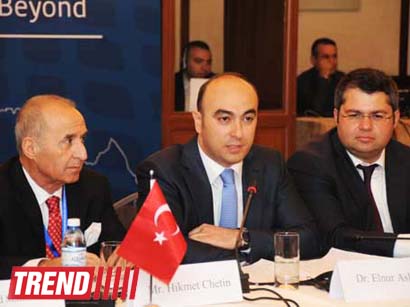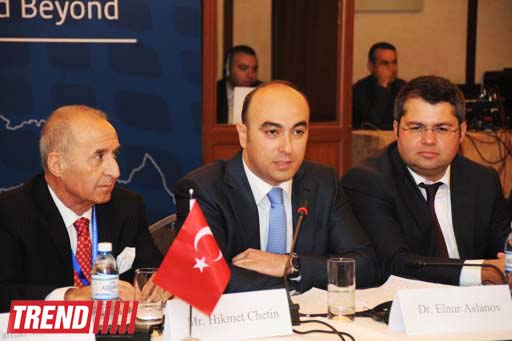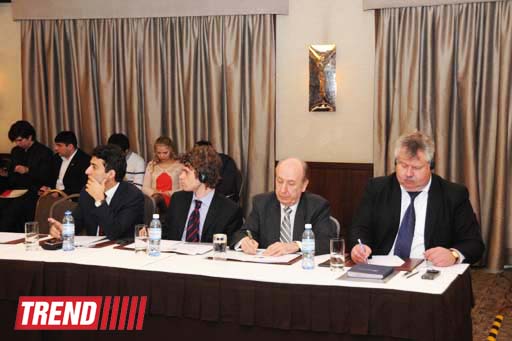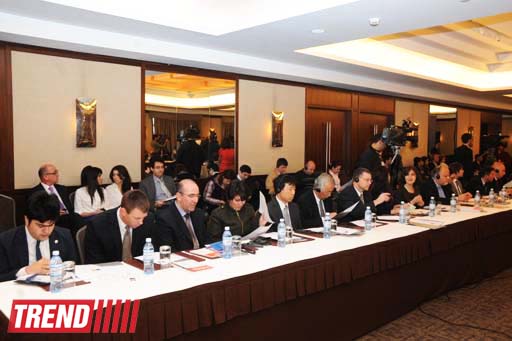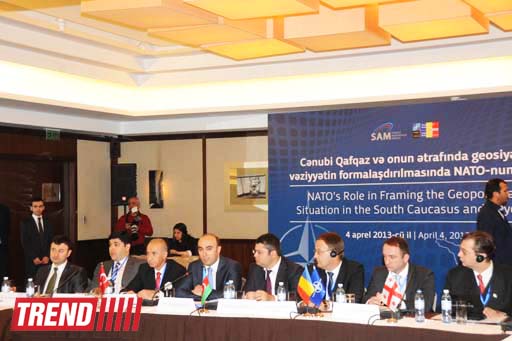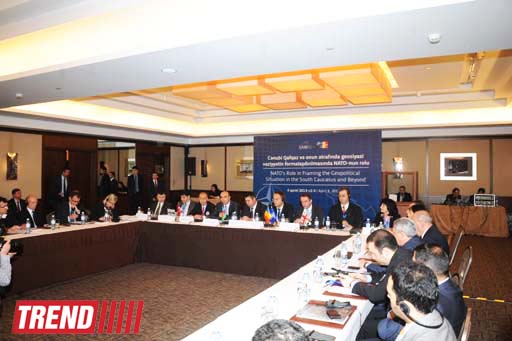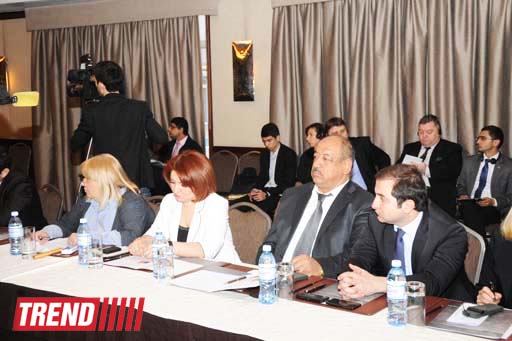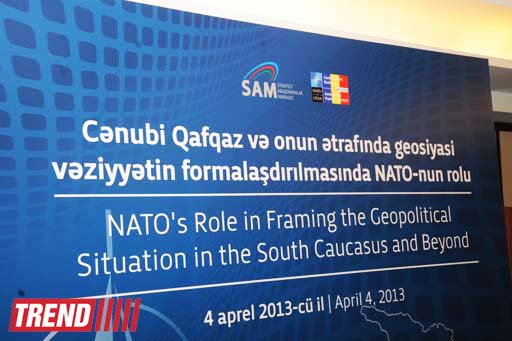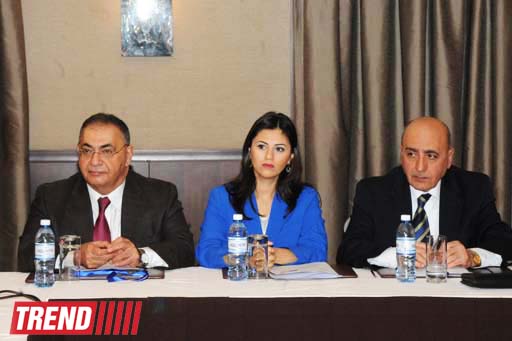Azerbaijan, Baku, April 4 / Trend E. Mehdiyev /
The Azerbaijani-NATO relations have a long history, and Azerbaijani peacekeepers have turned into active NATO peacekeepers, Azerbaijani Presidential Administration Political Analysis and Information Provision Department Head Elnur Aslanov said.
He made the remarks at the conference "NATO's role in shaping the geopolitical situation in the South Caucasus and around it" today organized by the Strategic Studies Center under the Azerbaijani President together with the Romanian embassy in Azerbaijan (NATO coordinator in Azerbaijan).
Aslanov said that the relations between Azerbaijan and NATO have been developing dynamically and expanding the relations with NATO today is one of the priorities of the Azerbaijani foreign policy.
"Azerbaijan is interested in bringing its army to NATO standards," he noted.
Aslanov mentioned the fact that about 2,200 sick and wounded were taken from Afghanistan through the Azerbaijani territory in January-August 2012.
He also said that around 70 percent of the South Caucasus's economy fall to Azerbaijan," he said.
"Speaking of competitiveness, according to the World Davos Forum's reports, Azerbaijan ranks 46th in the world and 1st in CIS," Aslanov said.
He said that this shows the economic development plays an important role in shaping the Azerbaijani foreign policy, noting that Azerbaijan has turned from an aid-receiving country into a donor country.
However, according to Aslanov, there is a problem which is the main obstacle to Azerbaijan's development and the region as a whole, the Armenian-Azerbaijani conflict.
"The Armenian-Azerbaijani conflict has remained unresolved for a long time. The lack of the ambiguous assessment of Armenia's aggressive policy by the world community, international organizations, the silence on this issue led to the fact that the conflict remains unresolved. This poses a serious threat to stability and security of the region. Armenia's aggressive policy is a barrier, "cancerous growth" in the development of the region," Aslanov underscored.
He said that one of the most important issues in Azerbaijan's development, including the region as a whole, is to implement the projects of new energy and transport corridors. Aslanov added that Azerbaijan and Georgia are closely cooperating on this issue with the international forces.
"However, Armenia stays away from these projects because of its aggressive policy and a non-constructive position," he said. "Without abandoning its aggressive policy, Armenia stays away from this integration process."
Aslanov further said that the inter-state integration is one of the important factors, and Azerbaijan pays special attention to it.
"Azerbaijan is in very close friendship and partnership relations with its other neighbor in the South Caucasus - Georgia and is interested in further development of these relations," he underscored.
The conflict between the two South Caucasus countries began in 1988 when Armenia made territorial claims against Azerbaijan. Armenian armed forces have occupied 20 per cent of Azerbaijan since 1992, including the Nagorno-Karabakh region and seven surrounding districts.
Azerbaijan and Armenia signed a ceasefire agreement in 1994.
The co-chairs of the OSCE Minsk Group - Russia, France and the U.S. - are currently holding peace negotiations.
Armenia has not yet implemented the U.N. Security Council's four resolutions on the liberation of the Nagorno-Karabakh and the surrounding regions.
Top official: Azerbaijani servicemen turn into active NATO peacekeepers (PHOTO)
The Azerbaijani-NATO relations have a long history, and Azerbaijani peacekeepers have turned into active NATO peacekeepers, Azerbaijani Presidential Administration Political Analysis and Information Provision Department Head Elnur Aslanov said.
